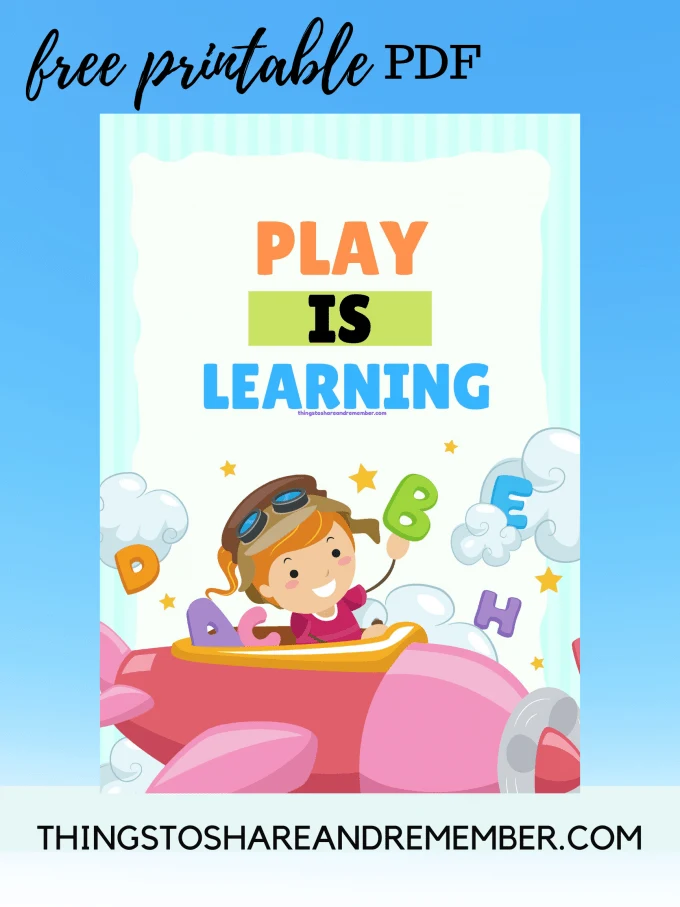It’s often misunderstood that play is a waste of time or something children do when they’re not learning. But it’s not! Children learn through fun engaging and often repetitive activities – developing all the skills they need to mature and be ready for a lifetime of curiosity, self-confidence, and joy in learning.
Even the definition of play on Google isn’t the best description as it applies to children:
play/plā/
engage in activity for enjoyment and recreation rather than a serious or practical purpose.
Google
There is a serious and practical purpose to children’s play!
See all of my free printables here >> Free Printables from Share & Remember
Children learn and develop through play. Their brains develop and their communication and language skills grow. Think of all the opportunities for fine and gross motor practice, as well as problem-solving and social-emotional skills.
Children Love to Play
Include dramatic play, art experiences, outdoor and nature play, along with manipulatives, sensory and loose parts in a child’s environment. Create a well-rounded environment for preschoolers. Play should be undirected (but supervised for safety) and adults should be ready to guide if needed. Children develop the skills they need and discover new concepts and ideas when they are given time.

Read this article from NAEYC: 10 Things Every Parent Should Know About Play

Provide a safe, stimulating and fun environment and watch children learn! The more you know about child development, the more you see the benefits. Children need large blocks of child led time exploring toys and materials.
Download the Play is Learning Poster
Enjoy the printable poster. How will you play today?
